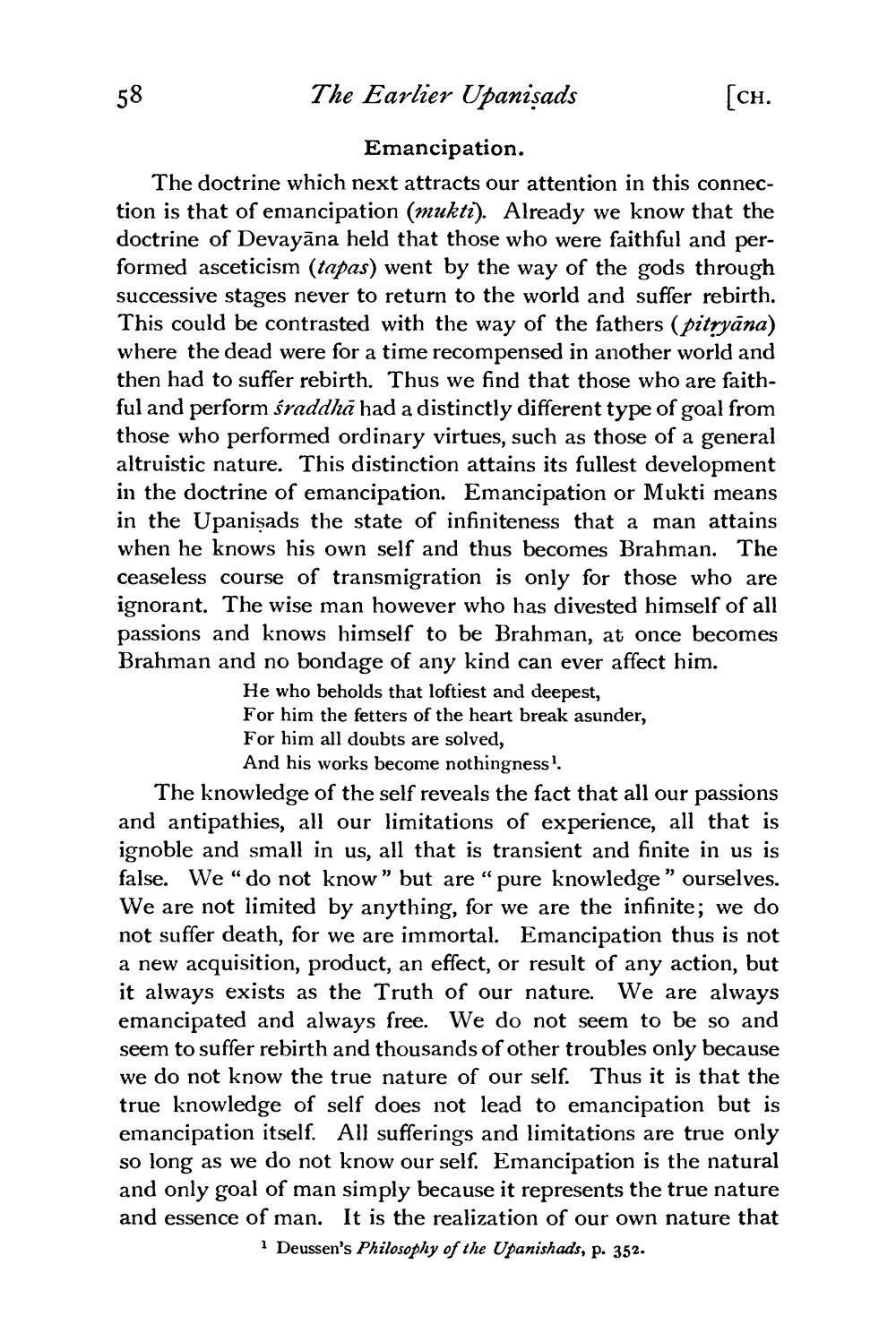________________
58
The Earlier Upanişads
[CH.
Emancipation. The doctrine which next attracts our attention in this connection is that of emancipation (mukti). Already we know that the doctrine of Devayāna held that those who were faithful and performed asceticism (tapas) went by the way of the gods through successive stages never to return to the world and suffer rebirth. This could be contrasted with the way of the fathers (pitryāna) where the dead were for a time recompensed in another world and then had to suffer rebirth. Thus we find that those who are faithful and perform śraddha had a distinctly different type of goal from those who performed ordinary virtues, such as those of a general altruistic nature. This distinction attains its fullest development in the doctrine of emancipation. Emancipation or Mukti means in the Upanisads the state of infiniteness that a man attains when he knows his own self and thus becomes Brahman. The ceaseless course of transmigration is only for those who are ignorant. The wise man however who has divested himself of all passions and knows himself to be Brahman, at once becomes Brahman and no bondage of any kind can ever affect him.
He who beholds that loftiest and deepest, For him the fetters of the heart break asunder, For him all doubts are solved,
And his works become nothingness! The knowledge of the self reveals the fact that all our passions and antipathies, all our limitations of experience, all that is ignoble and small in us, all that is transient and finite in us is false. We "do not know" but are "pure knowledge” ourselves. We are not limited by anything, for we are the infinite; we do not suffer death, for we are immortal. Emancipation thus is not a new acquisition, product, an effect, or result of any action, but it always exists as the Truth of our nature. We are always emancipated and always free. We do not seem to be so and seem to suffer rebirth and thousands of other troubles only because we do not know the true nature of our self. Thus it is that the true knowledge of self does not lead to emancipation but is emancipation itself. All sufferings and limitations are true only so long as we do not know our self. Emancipation is the natural and only goal of man simply because it represents the true nature and essence of man. It is the realization of our own nature that
i Deussen's Philosophy of the Upanishads, p. 352.




